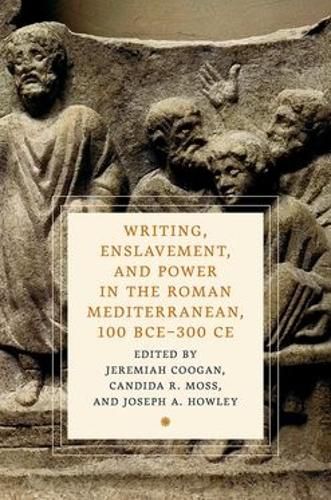Readings Newsletter
Become a Readings Member to make your shopping experience even easier.
Sign in or sign up for free!
You’re not far away from qualifying for FREE standard shipping within Australia
You’ve qualified for FREE standard shipping within Australia
The cart is loading…






This volume assembles twenty-two scholars from the fields of classics and early Christian studies to interrogate the intersections between writing and enslavement around the Roman Mediterranean. Drawing upon methods developed in scholarship on book history and Atlantic slavery, the authors demonstrate the myriad ways in which the material and intellectual contributions of enslaved literary workers were vital to the composition, editing, copying, circulation, reading, and preservation of Roman texts. This thematically organized volume exposes the ways that power dynamics denigrate and erase enslaved contributors, as well as how language barriers, gender difference, and disability created dependence on enslaved workers. The central role of enslaved workers in practical work like bookkeeping, education, and divination is explored, in addition to the unseen labor of enslaved collators, note-keepers, editors, and curators. Enslaved workers were a constitutive part of the Roman knowledge economy; their roles in allowing others to read and write, in producing ancient literature, and in staffing the bureaucratic structures of the Roman empire were profound. Roman literature, technology, and knowledge depended on the labor and expertise of enslaved literate workers, and these chapters argue that they influenced just about every aspect of Roman life.
$9.00 standard shipping within Australia
FREE standard shipping within Australia for orders over $100.00
Express & International shipping calculated at checkout
This volume assembles twenty-two scholars from the fields of classics and early Christian studies to interrogate the intersections between writing and enslavement around the Roman Mediterranean. Drawing upon methods developed in scholarship on book history and Atlantic slavery, the authors demonstrate the myriad ways in which the material and intellectual contributions of enslaved literary workers were vital to the composition, editing, copying, circulation, reading, and preservation of Roman texts. This thematically organized volume exposes the ways that power dynamics denigrate and erase enslaved contributors, as well as how language barriers, gender difference, and disability created dependence on enslaved workers. The central role of enslaved workers in practical work like bookkeeping, education, and divination is explored, in addition to the unseen labor of enslaved collators, note-keepers, editors, and curators. Enslaved workers were a constitutive part of the Roman knowledge economy; their roles in allowing others to read and write, in producing ancient literature, and in staffing the bureaucratic structures of the Roman empire were profound. Roman literature, technology, and knowledge depended on the labor and expertise of enslaved literate workers, and these chapters argue that they influenced just about every aspect of Roman life.